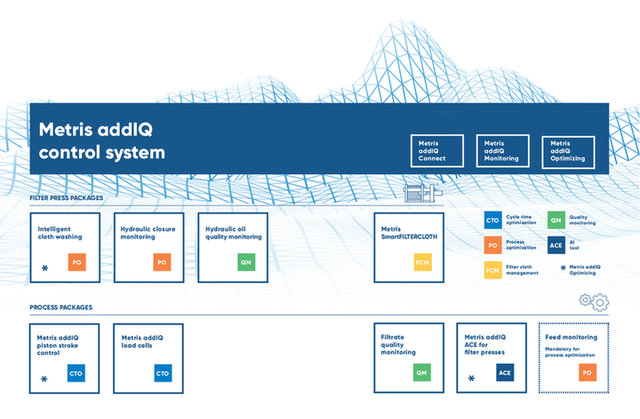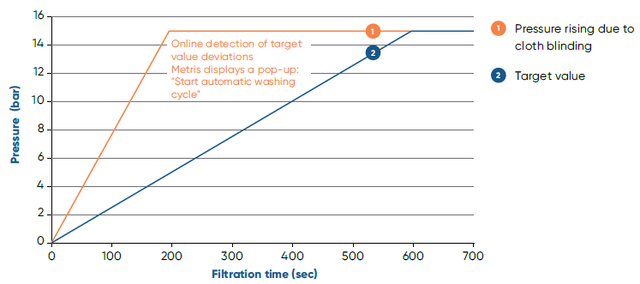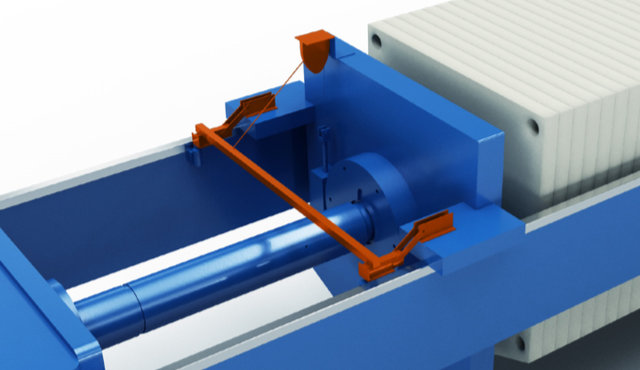COMPANY INSIGHT
Sponsored by: ANDRITZ Separation
Increasing profitability in filtration processes with ANDRITZ intelligent filter presses
ANDRITZ Separation provides mechanical and thermal technologies, services and automation solutions for the chemical, environmental, food, mining and minerals industries.


In many industries, efficient filtration is the key to achieving consistently high product quality, and one of the most common technologies in filtration is the filter press. By combining proven filter press automation solutions with Industrial Internet of Things (IIoT) technologies, an increase in product quality and a decrease in operating costs can be achieved with the Intelligent Filter Press from ANDRITZ.
More than half of the country’s coal mines are managed by pro-Russian separatist militia.Credit: DmyTo/Shutterstock.
More than half of the country’s coal mines are managed by pro-Russian separatist militia.
Credit: DmyTo/Shutterstock.
Cornerstones on which the future of filtration rests
Smart Sensors collect all the relevant operational data from the filter press, after which sophisticated data analytics select the relevant details and visualize this information for the operator. The technology can be used for manual operations as well as fully automated filter presses and is useful for everything from predictive maintenance solutions to process monitoring, troubleshooting, and long-term trending.
Further components such as process optimization, mechanical innovation, predictive maintenance, and industrial digitalization increase the production capacity thanks to cycle time optimization and several process optimization features. In addition, the process becomes more reliable thanks to the quality monitoring features, and entire filter press plants can make significant productivity gains with minimal intervention when Artificial Intelligence (AI) is applied – like in the Metris addIQ ACE system for filter presses.

Overview of all packages and features included in ANDRITZ’s Intelligent Filter Press
Risk minimization, efficiency increase, and profit maximization through intelligent features:
Intelligent cloth washing
The intelligent cloth washing system features a sensor that monitors the shifting plate angle along with any pressure increase during the filtration process. If the system detects any deviation from nominal values, the filter press stops automatically, massively increasing operating safety. Furthermore, a washing cycle is only recommended when a deviation is sensed. This cuts OPEX as cloths are only washed when really necessary. The fact that the filter press operates under ideal mechanical conditions also means that the lifetime of filter cloths can be extended by up to 20%.

Online pressure monitoring
Hydraulic closure monitoring and feed monitoring
Hydraulic closure monitoring improves process safety and contributes towards creating optimal operating conditions. Usually, the pressure is set to the highest level, subjecting the filter plates and cloths to very high mechanical stress and causing the hydraulic power pack to consume more energy. With hydraulic closure monitoring in place, the hydraulic oil pressure is set to optimal values based on feed temperature and feed pressure. It also minimizes the risks in hazardous environments as there is no contamination.
Filter cloth management
The Metris SmartFILTERCLOTH tracking system helps to monitor the use of filter cloths, saving operators time and money. An integrated RFID chip is tagged to each cloth. Together with a user-friendly software package, this enhances performance by monitoring cloth life precisely and recording any damage for troubleshooting purposes. For operators with several plants, the software can also create an interactive world map providing a global view of cloth management.
Cycle-time optimization
Efficient cycle-time management for the filtration process is ensured by simple mechanical solutions, for example with the Metris addIQ piston stroke control system and Metris addIQ load cells. The operating cycle of a filter press takes time, especially during the sequence to open the plate pack and discharge the cake. The shifting plate needs to travel the full distance to hit the mechanical stops – which takes time. The Metris addIQ piston stroke control system manages to shorten the cycle time by up to 40%. With this system in place, the bars shorten the distance traveled by the shifting plate. Although the work opening is smaller, the plate transport system reaches the plate alignment stops faster.

Mechanical stroke shortening – shown here on a sidebar filter press – can significantly reduce cycle times.
The Metris addIQ load cells measure the initial weight of the filter press and monitor it throughout the entire filtration process. Usually, the process parameters of the filter press, like feed pressure or flow rate, are set during start-up. But as the make-up of the feed slurry can vary, the parameters need to be adjusted to maintain the machine’s performance and keep the feed time to a minimum. This can be achieved with Metris addIQ load cells: optimized cycle time for every batch without any need for operator intervention.
Hydraulic oil and filtrate quality monitoring
The intelligent filter press also measures any deviations in oil quality (water content, particle content, and temperature) to prevent any water (causing corrosion) and any contaminant particles (causing damage to valves and cylinders) from mixing with the oil. As a result, it extends the lifetime of hydraulic power packs and also facilitates predictive maintenance while increasing operational safety because there is less wear.
Ensuring good filtrate quality and less damage to cloths, plates, and peripheral equipment can be achieved with a filtrate quality monitoring system in place. Filter cloth damage is the main cause of filtrate contamination as damaged filter cloths can enable particles to pass into the filtrate. Here, a sensor monitors the particles and any damage is detected by automatic filtrate analysis. The quality of filtrate is displayed online via an HMI with intuitive design. This real-time, online monitoring helps operators avoid any further damage to the equipment and provides an additional warning in case of overfilling.
Highest performance also for multiple filter press lines
Maintaining an overview of the entire operation becomes a complex task when there are more than four filter presses in a plant. Metris addIQ ACE for filter presses is powered by AI technology so that each machine in the plant is aware of what is happening throughout the whole operation. It looks at the operational management of the filter presses as a complete system, thereby also optimizing ancillary equipment like feed pumps to avoid excess power consumption, and it is smart enough to make intelligent trade-offs between availability, filtration efficiency, and throughput. The efficiency of each filter press is taken into account, information from upstream and downstream operations are collected, and intelligent decisions are made automatically to maximize production throughput, minimize water consumption, and increase overall filtration efficiency.

